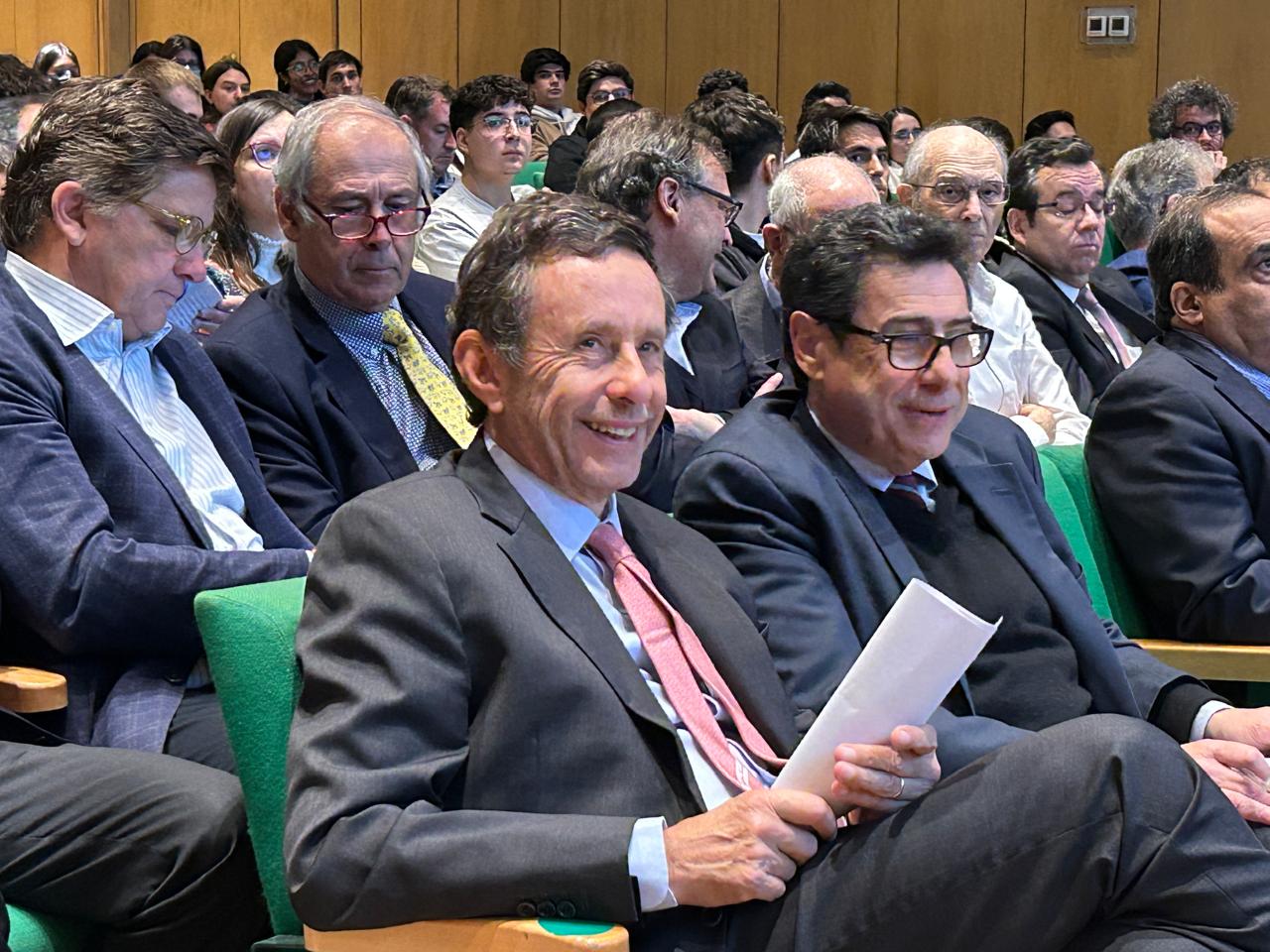27 de March, 2025
Philippe Aghion Opens 2025 Academic Year at FEN-UChile with a Call for Innovation and Competition
 The Schoool of Economics and Business at the University of Chile (FEN-UChile) officially launched its 2025 academic year with a keynote address by renowned economist Philippe Aghion. The event was led by Dean José De Gregorio, who highlighted Aghion’s influential contributions to the fields of economic growth and innovation.
The Schoool of Economics and Business at the University of Chile (FEN-UChile) officially launched its 2025 academic year with a keynote address by renowned economist Philippe Aghion. The event was led by Dean José De Gregorio, who highlighted Aghion’s influential contributions to the fields of economic growth and innovation.
“Philippe Aghion has played a central role in the development of modern economic theory,” De Gregorio said in his opening remarks. “Together with Peter Howitt, he introduced the concept of creative destruction in the context of economic growth, helping us better understand the dynamics of innovation and its global economic impact.”
Aghion currently holds professorships at the Collège de France and INSEAD and serves as a visiting professor at the London School of Economics. Over the course of his distinguished academic career, he has held key positions at leading institutions, including Harvard University, where he occupied the Robert C. Waggoner Chair of Economics from 2002 to 2015.
Among his most influential works is The Economics of Growth (2008), co-authored with Peter Howitt, now considered a foundational text in the study of economic development.
In addition to his books, Aghion has published extensively in top-tier academic journals. His seminal paper, A Model of Growth through Creative Destruction (1990), co-written with Howitt, presents a framework in which innovation serves as the primary driver of economic growth, underscoring the transformative role of creative destruction. Another widely cited publication, Competition and Innovation: An Inverted-U Relationship (2005), explores how varying levels of market competition impact firms’ capacity to innovate.
Innovation, Competition, and Artificial Intelligence.
During his visit to FEN-UChile, Aghion focused his lecture on the crucial role of innovation, competition, and artificial intelligence (AI) in driving economic growth. He also addressed broader challenges such as how competition fosters the development of new markets, the implications of AI for economic policy, and the need to adapt regulatory frameworks to promote innovation.
A central theme of his talk was the importance of market entry for new firms. “Economic growth is closely tied to a country’s ability to allow the entry and exit of firms. When new players face barriers, innovation slows, and development is hindered,” Aghion emphasized.
He also stressed the urgent need to update competition policies in the era of AI. “If we fail to adapt our competition frameworks, we risk enabling a handful of large firms to dominate the market, thereby stifling innovation from emerging players,” he warned.
On the topic of equity and social mobility, Aghion pointed to education as a key driver of opportunity. “Quality education is essential for innovation to serve not only as a vehicle for growth but also as a tool for equity. Without systems that encourage creativity and critical thinking, we risk reinforcing structural inequalities,” he said.
Finally, addressing Chile’s current economic landscape, Aghion underscored the need to strengthen institutions and build a robust innovation ecosystem. “Chile has enormous potential, but it’s vital to maintain policies that encourage competition and prevent dominant actors from obstructing the rise of new innovators,” he concluded.
[View full presentation here.]
Latest news
- FEN Uchile Faculty Engages in International and National Academic Activities
- FEN Uchile, MIT, and Mujeres Empresarias Join Forces to Train the Next Generation of Women Board Directors
- Philippe Aghion Opens 2025 Academic Year at FEN-UChile with a Call for Innovation and Competition
- FEN Uchile Hosts Its First-Ever Carbon-Neutral Event: Chile Carbon Forum 2024
- Seventy International Students Join FEN for the First Semester of 2025